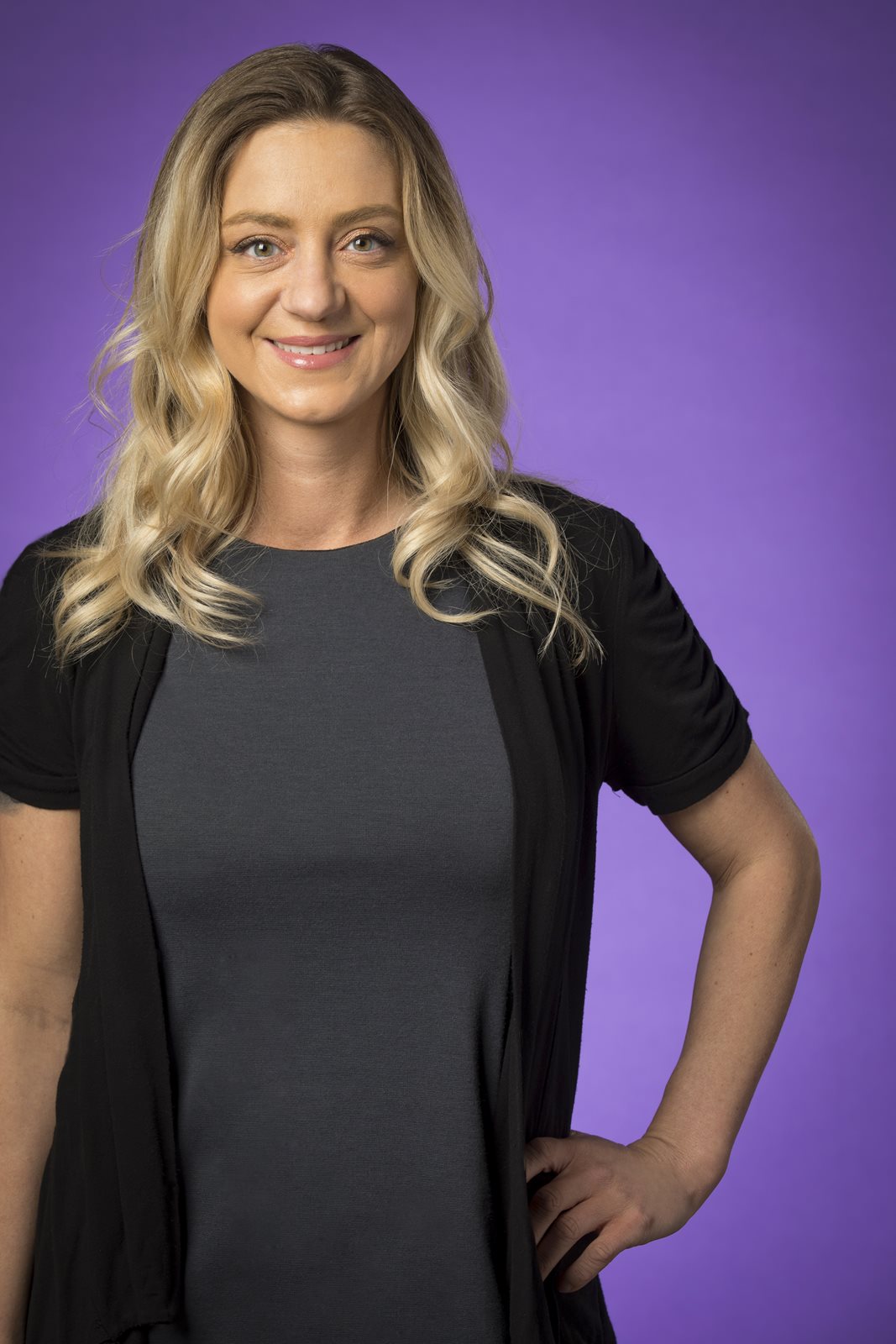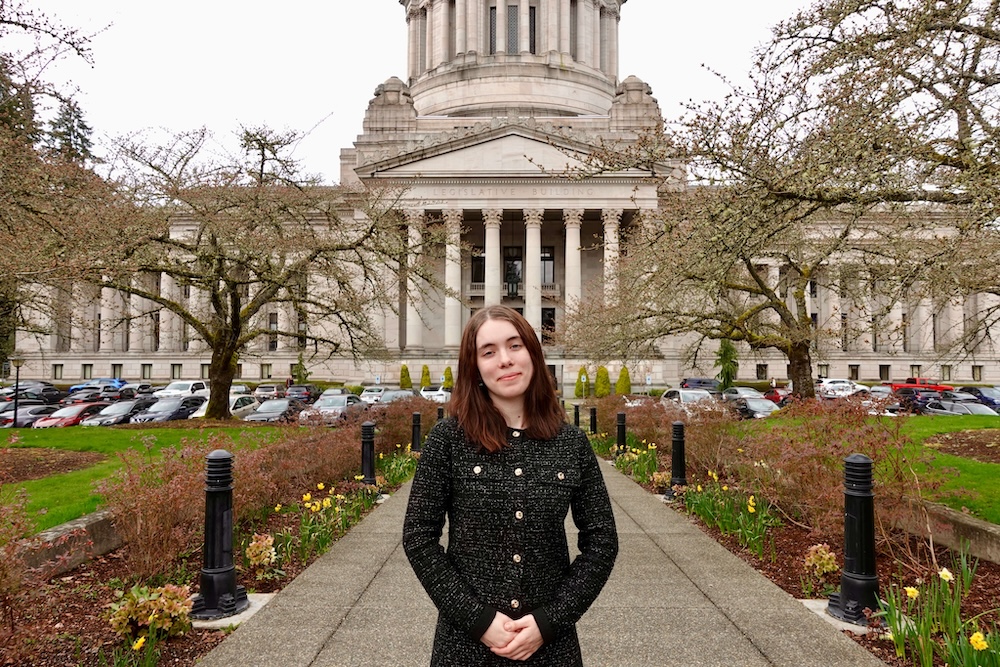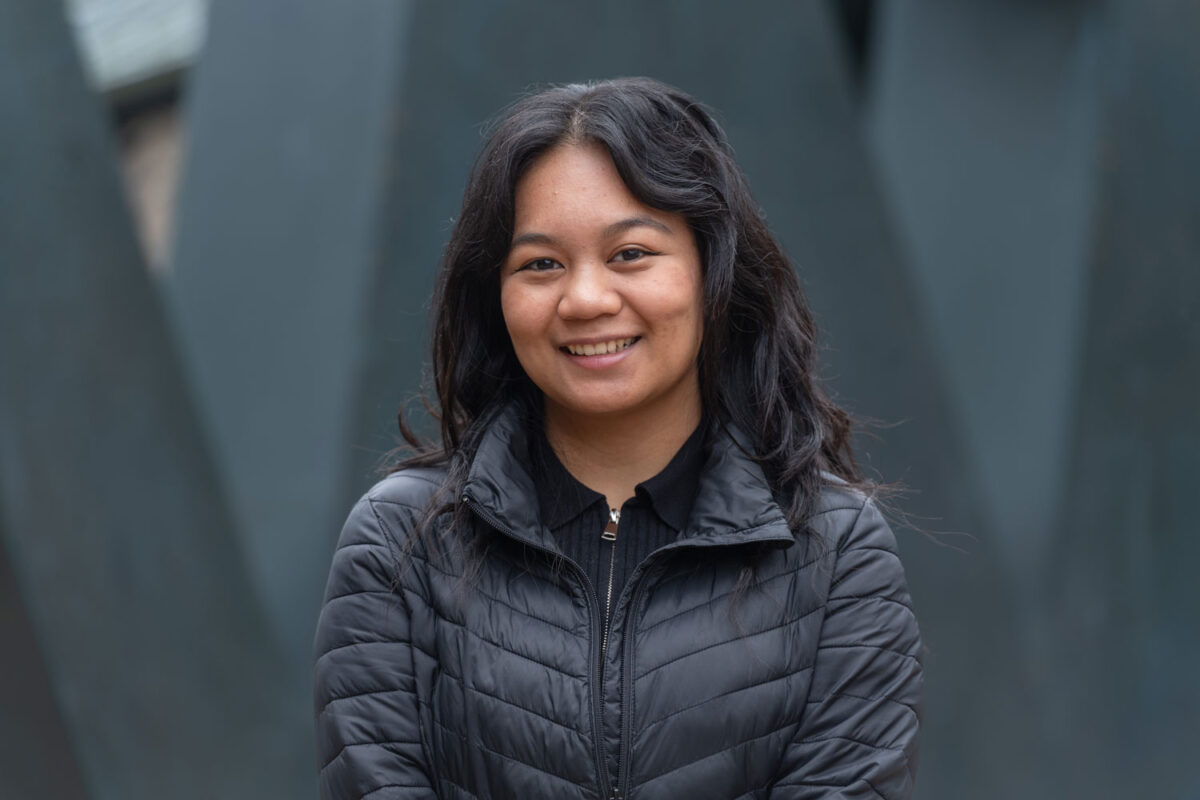One challenge Crystal Nelson learned to handle at the University of Washington Bothell is how to talk about her 17 years of life on the streets.

“Coming from being homeless and a poor family, I thought that I had to put up this façade,” she said. “I was afraid to tell people that I was a recovering addict.”
But encouragement and support from other students and faculty made her feel at home, Nelson said. “I started really discovering that I don't have to give up part of my identity to become an intelligent, college-educated woman.”
Now she is recognized as a member of the Husky 100.
Finding justice
Nelson freely talks about her past to encourage other people who are in recovery. She grew up in Everett with three siblings and a single mother who was working all the time.
“I started running around with the wrong group of people, and I started using when I was 13.,” she said. “I was an honor student, advanced in everything, and then by the end of eighth grade I dropped out of school. That continued for 17 years — a long time of just being on the streets and everything that comes along with that.”
What forced Nelson to change was a custody battle for her son in court.
“I got interested in becoming a lawyer because I started looking up all the rules on how I could fight this custody case,” Nelson said. “I got clean and started getting involved with 12-step programs.
“I’ve always thought of the legal system as saving my life.”
A transfer student from Everett Community College, Nelson graduated from UW Bothell at the end of winter quarter with a degree in Law, Economics and Public Policy. She starts Seattle University School of Law school in August, with a scholarship covering much of the cost.

Planning for the future
Nelson lives in Monroe with her son and daughter. She holds down a retail job at the AutoZone store in Monroe, which helps her with flexible scheduling. “They’ve been very supportive,” Nelson said. “I started working there right when I got clean.”
After law school, Nelson wants to practice in a drug court program. “I think it's a phenomenal program that saves a lot of people's lives.”
Later, Nelson would like to work in policy, perhaps in Washington, D.C., after her children are grown. She had a look at what that might be like during a Washington D.C. Human Rights Seminar trip led by Ron Krabill, associate professor in the School of Interdisciplinary Arts & Sciences (IAS).
The course “was really important for me because I was discovering my own political ideologies — exactly what do I believe in and why do I believe in it,” said Nelson, who also researched extrajudicial killings of drug addicts in the Philippines. “I related it back to all these different ways that I've been able to explore the stigma of addiction. I was able to explore how policy affects addicts in other countries.”
It was an unusual trip for another reason. “It was the first time I ever wore a business suit in my life. That's a big deal. I've never had any reason to wear a business suit.”
The power of mentors
Another influential course for Nelson was the Art of Social Transformation. Taught inside the walls of the Monroe Correctional Complex with inmates, the course is led by Gary Carpenter, an IAS lecturer. Nelson now volunteers on her own in the prison and is helping start a leadership program.
“A large majority of the people incarcerated are addicts in recovery. I felt the connection there for sure and signed up,” Nelson said. “What I want to teach them is how to represent themselves to society when they get out — the way to share their story and show people they’re not the person they see on paper.
“If I were just the person that people see on paper,” she said, “then I would be rejected from opportunities as well. But I've learned how to represent myself. I want to help other people do that.”
Among her mentors, Nelson said, Krabill and Jessica West were particularly special. Now a visiting associate professor at the UW School of Law, West gave Nelson “irreplaceable” advice about the LSAT and applying for law school. Krabill, who led the Washington, D.C., seminar “knew my story from the very beginning. I've always been able to reach out to him on a really honest level and ask for guidance.”
Nelson graduated with a high GPA, “but it's not my grades that tell how much I've grown while I was here. It's my confidence and my self-worth and my self-esteem that have literally just blossomed,” Nelson said. “It's because of the community here.
“I finally feel like I belong somewhere. That’s what UW Bothell has done for me.”



